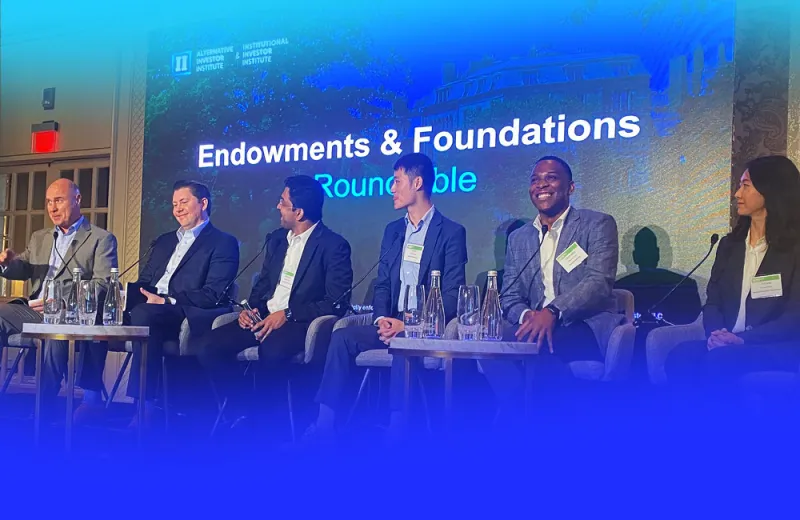As asset owners place an increasing premium on diversity, one question is on the minds of chief investment officers: How can they attract and retain diverse talent in their own investment offices?
At a Tuesday panel held at Institutional Investor’s Endowments & Foundations Roundtable, early-career staffers from Hartford HealthCare and Ascension’s investment office weighed in on the topic alongside their CIOs.
For the panelists, the notion that millennial and Gen-Z employees are seeking purpose at work rings true. Each highlighted the “greater good” of working at a hospital investment office as one factor that attracted them to the industry.
“We’re helping the business grow and helping vulnerable people,” said Alyssa Rong, an investment analyst at Ascension. “Knowing that motivates me every day.”
Her colleague, senior analyst Abhishek Rane, agreed. “It’s always great to be at a firm where you are doing good,” he said. “Ascension has those values.”
The panelists suggested that investment organizations looking to hire should be open to folks with backgrounds outside of MBAs or finance degrees. Both Rane and Hartford HealthCare investment analyst Andre Zhang, for instance, have undergrad degrees in engineering, while Giovanni Jones, investment coordinator at Hartford HealthCare, studied sociology at Trinity University.
“Instead of pulling the best person from just Harvard, there are hidden gems in places you wouldn’t even think to look,” Jones said.
Hartford HealthCare CIO David Holmgren concurred, suggesting that allocators recruit directly from local universities — like Trinity, which is based in Hartford, Connecticut.
“To find the right match, we need to look where the 23-year-old is looking, we need to actively engage in recruiting,” he said. “We have to think differently about staffing our positions.”
Once new staffers have been hired, they look for mentorship and opportunities for growth, the panelists said.
Rong, for instance, described joining a mentorship program at Ascension, where she was able to learn from someone in a totally different department at the hospital. “I’m trying to learn from people’s past experiences,” Rong said. “Mentorship is very important in terms of giving people guidance and experiences.”
Early-career staffers also looking for opportunities to grow. As Zhang said, “I wanted a job that’s opportunity-oriented and that I can grow from the position.”
Diversity was particularly important for the panelists. Rong, Rane, and Zhang each grew up in countries outside of the United States, while Jones is a first-generation American.
“We’ve tried to lean into being internationally more capable and having a more diverse staff helps in this regard,” Ascension CIO David Erickson said. For instance, Rong, Rane, and other staffers share expertise on investments in the countries they grew up in to prove — or disprove — biases within the investment team.
Jones said that he hopes CIOs are open to learning from these biases as well.
“You may think you know everything in terms of diversity, but sometimes you might hiccup into a situation where you say or do the wrong thing,” he said. “Take it as a learning opportunity and actively learn about different cultures and perspectives.”







